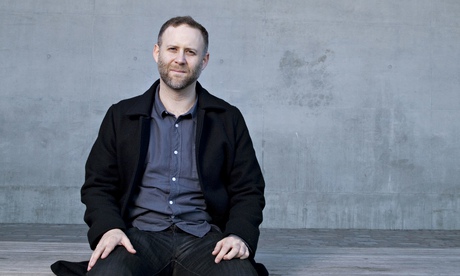
Will Boast, 35, was born in England and grew up in Ireland, then Wisconsin. He currently divides his time between New York and Chicago, where he teaches at the University of Chicago.
In the space of seven years [at 17, 19 and 24] you lost your mother, then your younger brother and finally your father. Were the moving and detailed passages about their deaths hard to write?
They were very hard to write. One nice thing about having finished the book is that I no longer have to think about it every day. Though probably not a day will pass in which I don’t think about my family, I don’t have to interrogate the past so intensely any more. And that’s a relief.
Overall, the book is an incredible portrait of your father…
He is the centre of the book, even though in a way it is written against his “code”: his code of secrecy, silence and a kind of masculinity that doesn’t let anyone even remotely close. Silence and discretion were touchstones for him and his generation. Perhaps he would have never wanted me to talk about all this. But I hope he would understand why I needed to at the same time.
What made you decide to write it?
I felt like I had no choice, that I had to address and couldn’t ignore my family’s past. It’s just such a dominant thing in my life, and I’ve always kind of written around it. I wrote a book of short stories with a fair amount of autobiography in it. Then I tried to write about my family in a novel and found that, for various reasons, it didn’t work. I had to be more direct. For me, you have to go to that place where the emotion is the hottest, otherwise your work suffers.
How long did it take?
Eight years, more or less, some of that trying to write it as a novel and some of that working on other things.
Some of the book covers your discovery – after his death – that your father had married prior to meeting your mother, and that you have half-brothers in England (who you are now in contact with)…
Yes that’s definitely part of it. And trying to figure out who exactly my dad was. He was 19 when he had his first family, and 33 when he began my family, and I think that what went wrong with his first marriage, he tried to fix with his second, not always successfully.
Secrecy is a recurring theme in the book, the secrets your family kept. In Britain the stereotype is that we keep it all in, Americans less so...
The midwest of America, where I largely grew up, is also stereotypically guarded. You do think “is that true?” And if it is true are we then so formed by these habits that we don’t even see it? I do think it’s safe to say that midwesterners and Brits are less revealing and less openly affectionate than people in other parts of the world. In my experiences, between the two, Americans are more forthcoming. I used to be a bag boy in the US, bagging your groceries in the checkout line. I did that all through high school and I’d hear the people coming through the line divulge the craziest things about their lives. It was a real hub of small-town gossip.
Do you read memoirs yourself?
Part of the process of writing this book was coming to the form. When I was starting to work on it the scandal had broken around James Frey [the author of the memoir A Million Little Pieces who was found to have made up some of the detail of his life story]. That was still in the air certainly, and I did feel reluctant to come to the form because there seemed something a little opportunistic about it. Then I started to investigate, and I found some books that were really good. Kathryn Harrison’s The Kiss is amazing. Frank Conroy’s Stop-Time. They are an argument for the form, truly beautiful books. Of course there are important differences between memoirs and novels, but I think the best memoirs have all the readerly pleasures of a novel. They don’t feel to me any less artful.
Is it very different writing memoir and fiction?
I think people have the idea that with memoir it has all already happened so it must be easy to write about. But in reality so much happens in life, there’s so much information coming at you every day. The difficulty is in sorting through all the material and finding a pattern. It also requires great emotional honesty, whereas in fiction you can change things, make certain things look better.
What other writers do you like?
I’m a big fan of the Swiss novelist Peter Stamm. I really like Roberto Bolaño, the Chilean guy. Huck Finn is still my favourite book. I love Natalia Ginzburg and George Orwell, particularly their nonfiction. And Geoff Dyer, I find him very addictive reading.
You’ve lost so many important people – who are your anchors now?
In England, my grandmother on my mother’s side. My aunties – my mum’s sister and my dad’s sister. My half-brothers Harry and Arthur too. In America, I’m lucky to have a really supportive group of friends.
Tell us about the novel you’re working on…
I plan to have a full draft by May or June. It’s about a woman with a rare neurological condition, but that’s all I should say about it. If I start to describe something I’m working on, I end up thinking, “This sounds really stupid. This is such a dumb idea!” Often it turns out well, but I just can’t talk about it without getting self-conscious.

